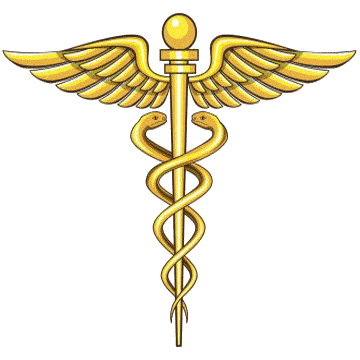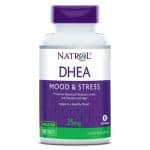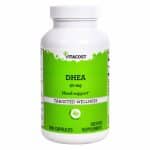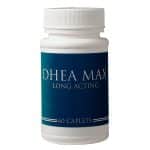You will find on this page, to know everything about DHEA, the following subjects:
What is DHEA?
What is DHEA used for?
Who should take DHEA?
What does a DHEA supplement provide?
Who should not take DHEA?
What is the recommended dosage?
Are there any side effects?
Does DHEA cause weight gain?
Can taking DHEA cause acne or make it worse?
Can you find natural DHEA?
What are the research findings on the effects of DHEA?
How to be sure to get a good quality product?
What is DHEA?
DHEA (dehydroepiandrosterone) is a steroid hormone produced by the adrenal glands. It is an essential component of most physiological functions. The body uses it in particular to manufacture the sex hormones testosterone, estrogen and progesterone.
Indirectly, a DHEA supplement also leads to an increase in the level of IGF-1 (a metabolite of growth hormone), which is one of the plausible explanations for its health benefits.
DHEA circulates in the body primarily in its water-soluble form, DHEA sulfate (DHEA-S).
What is DHEA used for?
Apart from its role as a precursor to sex hormones, DHEA is inversely related to the production of corticosteroid hormones, which are produced by the adrenal glands in response to stress. However, stress, which is an essential factor in the decline of DHEA from the age of 30, is accompanied by an increased susceptibility to disease, which goes hand in hand with accelerated aging.
Who should take DHEA?
DHEA supplementation can begin between the ages of 35 and 45 for particularly tired, stressed or immunocompromised individuals. People under 30 generally have sufficient levels of DHEA and should only take it if their tests reveal a deficiency or if their therapist advises them to do so. By age 40, the level of DHEA is only half the optimal level, and by age 75 it has declined from 80 to 90%.
What does DHEA supplementation do?
The main benefits of DHEA supplementation are:
- A significant and rapid improvement in energy levels and vitality, noticeable after only a few weeks in
82% in women and 67% in men (based on a study by the University of San Diego, California). - Stimulation of the immune system that strengthens resistance to disease.
- Better resistance to stress.
- A regulation of other hormonal functions, which can help reduce the disorders associated with menopause and andropause.
- A cutaneous rehydration thus improving the production of sebum (fatty substance allowing the skin to keep its suppleness and to defend itself against microbial attacks and the environment in general).
- Decrease in age-related pigmentation, especially in the face.
- Improvement of bone tissue (especially in women), interesting for use in the prevention of spontaneous bone fractures in the elderly.
- An increased libido (frequency of intercourse, desire, physical or psychological signs).
- A decrease in fat mass and an increase in muscle mass.
See the Health benefits of DHEA
Who should not take DHEA?
- Individuals under the age of 35, except on therapeutic advice.
- Pregnant or breastfeeding women, and those seeking to become pregnant.
- Individuals with breast or prostate cancer. More generally, if you are undergoing medical treatment, seek advice from your therapist.
What is the recommended dosage?
The optimal dosage varies with each person. Lifestyle, metabolism, and medical history influence supplement use. Generally speaking, women are advised to take 25 mg per day and men 50 mg. By taking DHEA in supplement form at these dosages for 4 to 6 months, it is possible to restore the optimal serum levels measured between the ages of 25 and 30.
But, the best way to know your exact need is the hormonal analysis (precise medical method to restore your optimal level of DHEA). Always take your DHEA preferably in the morning with breakfast.
Are there any side effects?
Supplemental DHEA, at the recommended dosages, causes virtually no noticeable side effects, and it is remarkably safe to use. DHEA has been sold without a prescription in the USA since 1995, including in supermarkets. Several tens of millions of people consume it daily without any problem being observed.
Does DHEA cause weight gain?
Taking DHEA or other hormonal treatments does not make you fat, quite the contrary! These treatments reduce adipose tissue and firm up muscles and flesh. See it 7-Keto DHEA especially.
Can taking DHEA cause acne or make it worse?
An appearance of acne, oilier hair should encourage you to reduce the dose, not to stop the treatment. However, "The correlation between the severity of acne and the level of DHEA sulphate or another androgen is most often weak, so that other causes (mainly food), in association with a level of high androgens, should be sought first.
A diet without dairy products should improve your condition (replace yogurt and others by taking calcium or calcium/magnesium tablets instead) and as regards sweets (especially chocolate) avoid consuming them because they generally allow you to accentuate acne in sensitive subjects. The abuse of sweets is not very compatible with DHEA treatment. (Maloine “For a better life” page 95-96)
Can you find natural DHEA?
NOPE ! DHEA is produced in the laboratory from a saponin of plant origin called diosgenin. The human body does not have the necessary enzymes to perform this conversion. Claims relating to products that “naturally” stimulate the production of DHEA are therefore completely unfounded.
What are the research findings on the effects of DHEA?
Short term : several thousand studies have been conducted. They demonstrate without ambiguity that DHEA dramatically improves vitality and well-being, strengthens the immune system, reduces the discomfort of menopause and helps prevent osteoporosis; that it improves neurological functions, memory and the quality of sleep.
Long-term : a large number of other studies are in progress, the preliminary results of which tend to show that DHEA supplementation positively affects the body's response to cancer, cardiovascular disease, diabetes, obesity, systemic lupus erythematosus and Alzheimer's disease.
These studies are in the process of verifying the basic hypothesis of the endocrine theory of aging: many degenerative diseases and functional deteriorations result from the drop in the production of certain hormones. Hormonal supplementation can stop them, or even reverse them.
How to be sure to get a good quality product?
There are significant differences between the grades of DHEA available on the market. Many products are wrongly presented as being “precursors” of DHEA when they cannot in any way influence the levels of DHEA present in the body. Our DHEA are pharmaceutical grade products, guaranteed to have a purity greater than 99.5%. See our range of DHEA.




